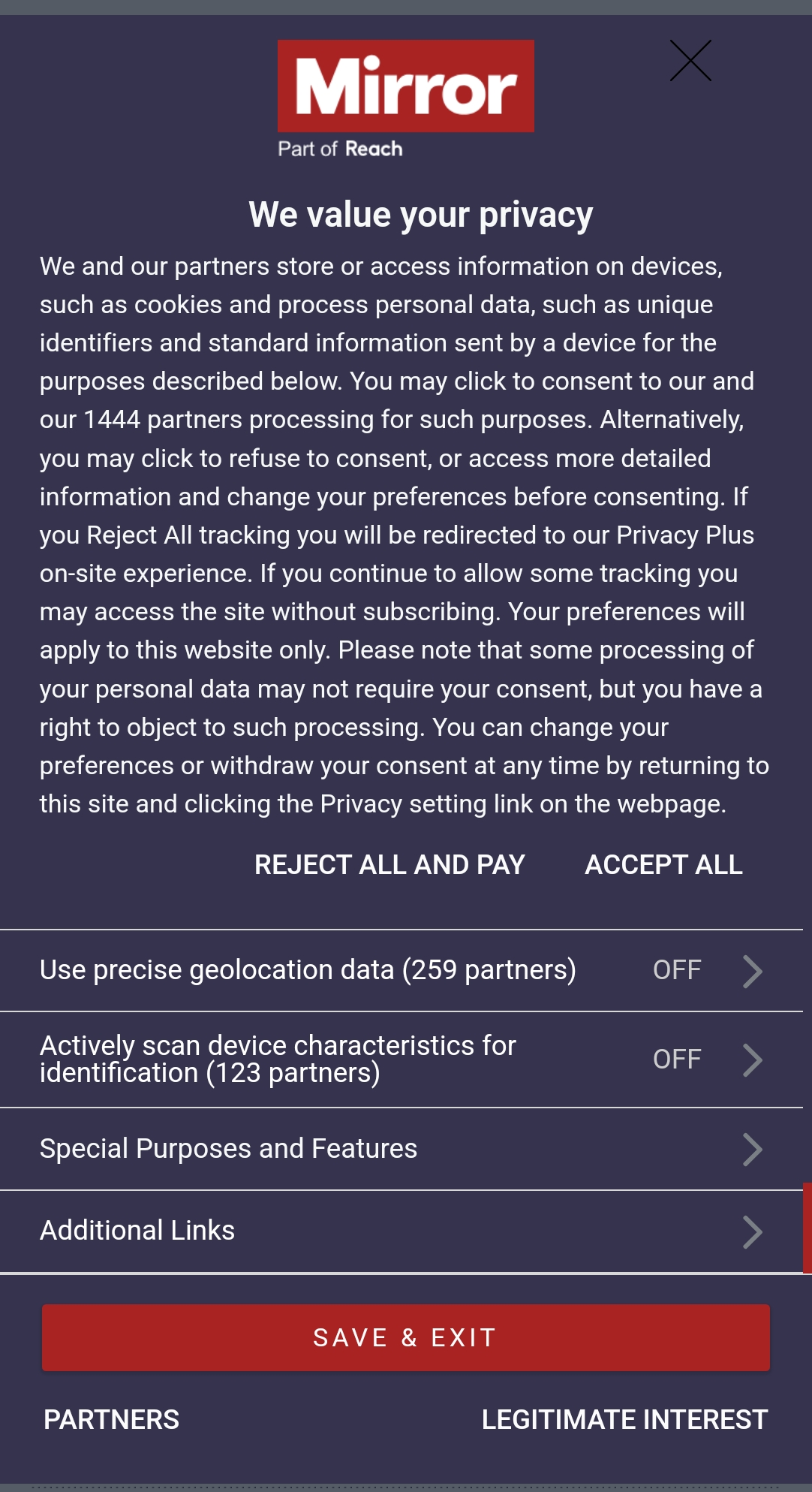
Not sure how long this has been a thing but I was surprised to see that you cannot view the content without either agreeing to all or paying to reject.

Not sure how long this has been a thing but I was surprised to see that you cannot view the content without either agreeing to all or paying to reject.
UK is not EU, so EU law does not apply.
Person I’m responding to said this was common in continental Europe
I’ve never seen one of these before
I’ll call bullshit on that until examples given…
www.spiegel.de
www.faz.net
www.sueddeutsche.de
www.heise.de
www.golem.de
www.derstandard.at
www.repubblica.it/
I don’t think you understand what we are talking about here regarding the Mirror.
You called bullshit on it being common on the continent, I provided examples from the continent.
Just those aren’t examples of what the mirror website is doing. You didn’t get the point.
Of course they are. You can pay or consent to tracking.
Nope, you can choose which cookies to consent to. E.g. only functional cookies.
i think this one might, actually. When the EU passes a law like this, each member state passes it into their own national law, and so if these cookies laws were implemented before the UK left the EU they’d likely still be there
It’s more than that. The EU law lets any EU citizen report a company that’s not in compliance. That includes companies not strictly in the EU. It’s why even US companies tend to be in compliance (or something like compliance).
If their product is accessible from within the EU, they have to implement the proper rules. That’s why many of the minor / weird news sites aren’t accessible from the EU anymore without VPN. Which I consider a win for EU citizens.
It’s even broader. An EU citizen living anywhere accessing any site can report that site. It may be that the EU won’t be able to collect the fine–assuming the owners never travel to the EU–but they can be fined.
The GDPR was enacted in 2016 and came into effect in 2018. The UK left the EU in 2020.
But UK laws do, which share a lot of commonality - like the GDPR